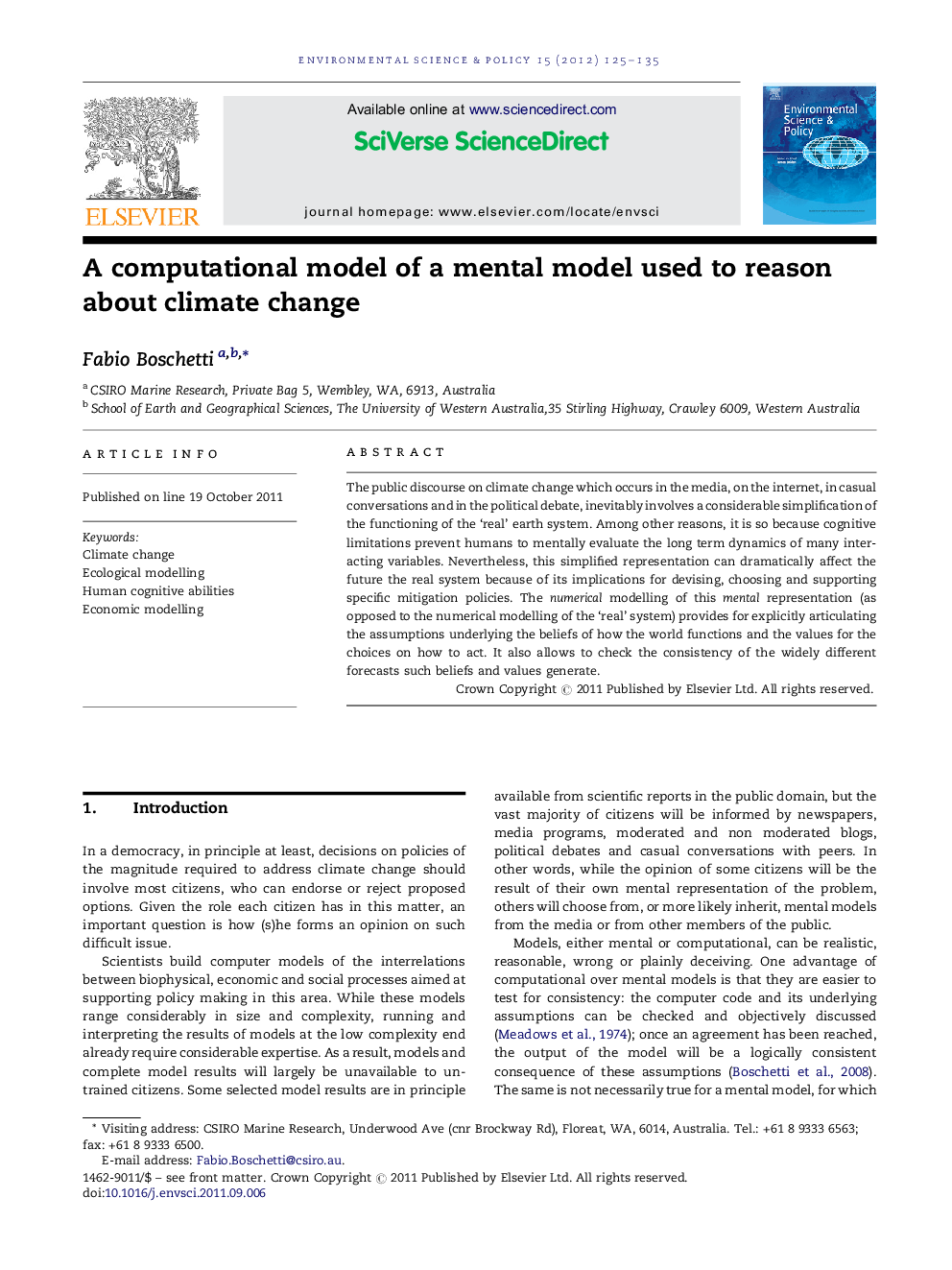| کد مقاله | کد نشریه | سال انتشار | مقاله انگلیسی | نسخه تمام متن |
|---|---|---|---|---|
| 1053865 | 946729 | 2012 | 11 صفحه PDF | دانلود رایگان |

The public discourse on climate change which occurs in the media, on the internet, in casual conversations and in the political debate, inevitably involves a considerable simplification of the functioning of the ‘real’ earth system. Among other reasons, it is so because cognitive limitations prevent humans to mentally evaluate the long term dynamics of many interacting variables. Nevertheless, this simplified representation can dramatically affect the future the real system because of its implications for devising, choosing and supporting specific mitigation policies. The numerical modelling of this mental representation (as opposed to the numerical modelling of the ‘real’ system) provides for explicitly articulating the assumptions underlying the beliefs of how the world functions and the values for the choices on how to act. It also allows to check the consistency of the widely different forecasts such beliefs and values generate.
► I propose a numerical representation of the mental models used in the climate change discourse.
► This model simulates empirical ideological polarisations and their impact on system evolution.
► Parameter tuning allows to model different human values and beliefs of how the world functions.
► The results suggest that moderate views display the least amount of internal consistency.
► Market-centric ideology results in the largest losses should their beliefs be found to be wrong.
Journal: Environmental Science & Policy - Volume 15, Issue 1, January 2012, Pages 125–135